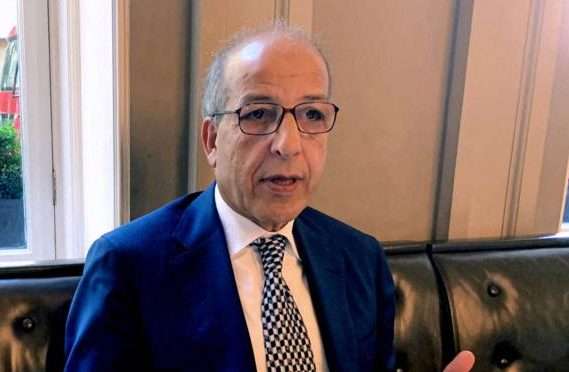Libya: Central Bank resumes work after official’s release

Libya’s fragile financial stability faced yet another test as its central bank got back to normal operations following the abduction and release of a senior official. According to Reuters, on August 19th the CBL announced it was resuming operations following the release of Musab Msallem, its head of information technology.
Reuters reported the CBL had said Msallem was abducted from his house on August 18th by an “unknown party,” adding that it would suspend operations until his release.
Read: Libya’s central bank ‘suspends operations’ after official abducted
According to the Agence France-Presse, the CBL added that other executives have been “threatened with abduction” and called for an end to these practices by “unlawful parties” which threaten the banking sector’s work.
The abduction of Musab Msallem came a week after a group of men, some of them armed, laid siege to the CBL’s headquarters in Tripoli on August 11, as revealed by Le Monde with AFP. Local media reported this was an attempt to force the resignation of CBL’s governor, Seddik al-Kabir.
According to the Associated Press, the situation remains unbalanced as the Presidential Council announced on August 19th that it has taken a unanimous decision to elect a new governor for the CBL and form a new board of directors to “carry out its duties efficiently, ensuring the continuity of financial services and achieving economic stability.”
The Presidential Council is attempting to force its choice of CBL governor by removing al-Kabir. In his place, the council appointed Mohamed Abdul Salam al-Shukri, an economist and former deputy governor.
Read: Libya’s powerful central bank governor is fired as country’s deep divisions persist
Libya, a country rich in energy resources, has been divided since 2014 between a U.N.-backed government based in the capital, Tripoli, and rival authorities in the east. This split occurred along existing political fault lines, with the internationally recognized government headquartered in Tripoli, while an eastern faction, allied with military commander Khalifa Hafter, established its base in Benghazi.
Libya’s eastern-based parliament, along with the Supreme Council of State, has called the removal of al-Kabir illegitimate, asserting that both bodies should have a role in appointing his successor, according to the Associated Press.
On August 12, after a meeting in Tunisia with al-Kabir, U.S. Special Envoy Ambassador Richard Norland posted on X that “threats to the security of the CBL staff and operations are unacceptable” and that “attempting to replace the leadership of the CBL by force can result in Libya losing access to international financial markets.”
Reuters/AFP/AP
Want to chase the pulse of North Africa?
Subscribe to receive our FREE weekly PDF magazine














